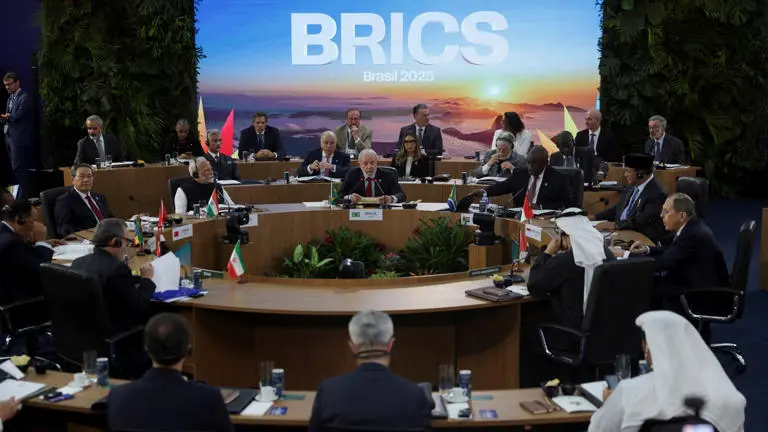
BRICS leaders condemned the Pahalgam terror attack in Jammu & Kashmir, calling for zero tolerance and rejecting global double standards
A Global Wake-Up Call: BRICS Unites Against Terror
In a rare show of unflinching solidarity, the BRICS nations Brazil, Russia, India, China, and South Africa, along with newly inducted members like Egypt and the UAE, issued a thunderous condemnation of the April 22 terrorist attack in Jammu & Kashmir’s Pahalgam. The attack, which claimed 26 lives and injured dozens, was described in the Rio de Janeiro Declaration as “criminal and unjustifiable,” regardless of the perpetrators’ motives or affiliations.
The declaration, adopted at the 17th BRICS Summit, marks a pivotal moment in global diplomacy. While it stopped short of naming Pakistan, the emphasis on cross-border terrorism, financing, and safe havens was widely interpreted as a pointed reference to Islamabad’s long-standing role in harbouring extremist groups.
Prime Minister Narendra Modi, addressing the summit, called the attack “a direct assault on the soul, identity, and dignity of India.” He urged the international community to treat terrorism not as a matter of convenience but as a matter of principle. “There should be no hesitation in imposing sanctions against terrorists,” he said, adding that “victims and supporters of terrorism cannot be weighed on the same scale”.
Zero Tolerance, No Excuses: A Blueprint for Global Action
The BRICS declaration didn’t merely condemn the attack, it laid out a robust framework for global counterterrorism cooperation:
- Rejection of Double Standards: The leaders emphasized that terrorism must be condemned universally, without bias based on geography, religion, or political alliances.
- Accountability for All: The declaration insisted that all those involved in terrorist acts—and those who support them must be held accountable under national and international law.
- Support for UN Frameworks: BRICS called for the urgent adoption of the Comprehensive Convention on International Terrorism (CCIT), a proposal India has championed for over two decades.
This strong language reflects a growing frustration among developing nations over selective outrage and inconsistent global responses to terrorism. India, in particular, has often criticized the international community for turning a blind eye to state-sponsored terrorism emanating from its neighbourhood.
The declaration also praised the work of the BRICS Counter-Terrorism Working Group and its five subgroups, signalling a deeper commitment to intelligence sharing, capacity building, and coordinated action.
Beyond Diplomacy: What This Means for India and the World
The BRICS condemnation is more than symbolic, it’s strategic. For India, it represents a diplomatic victory and a validation of its long-standing position on cross-border terrorism. It also puts pressure on countries like China, which have previously blocked UN sanctions against Pakistan-based terrorists, to align their actions with their rhetoric.
For the global community, the declaration is a wake-up call. It challenges the status quo of selective outrage and urges nations to adopt a consistent, principled approach to terrorism. The emphasis on rejecting “double standards” is a direct critique of geopolitical hypocrisy, where strategic interests often override moral clarity.
Moreover, the declaration’s timing is crucial. With India set to assume the BRICS chairmanship next year, it is poised to shape the bloc’s counterterrorism agenda more assertively. This could include pushing for greater cooperation on cyberterrorism, terror financing via cryptocurrencies, and the misuse of emerging technologies by extremist groups.
The Pahalgam attack has also reignited domestic debates in India about border security, intelligence coordination, and the need for swift justice. The BRICS statement, while diplomatic, adds international weight to these internal demands for accountability and reform.
The BRICS bloc’s forceful condemnation of the Jammu & Kashmir terror attack marks a pivotal moment in the global fight against terrorism. By calling out double standards and demanding zero tolerance, the declaration sets a new benchmark for international cooperation. For India, it’s a moment of diplomatic vindication. For the world, it’s a reminder that in the battle against terror, silence is complicity, and unity is strength.
1 thought on “BRICS Roars Against Terror: Pahalgam Attack Sparks Global Reckoning on Double Standards”